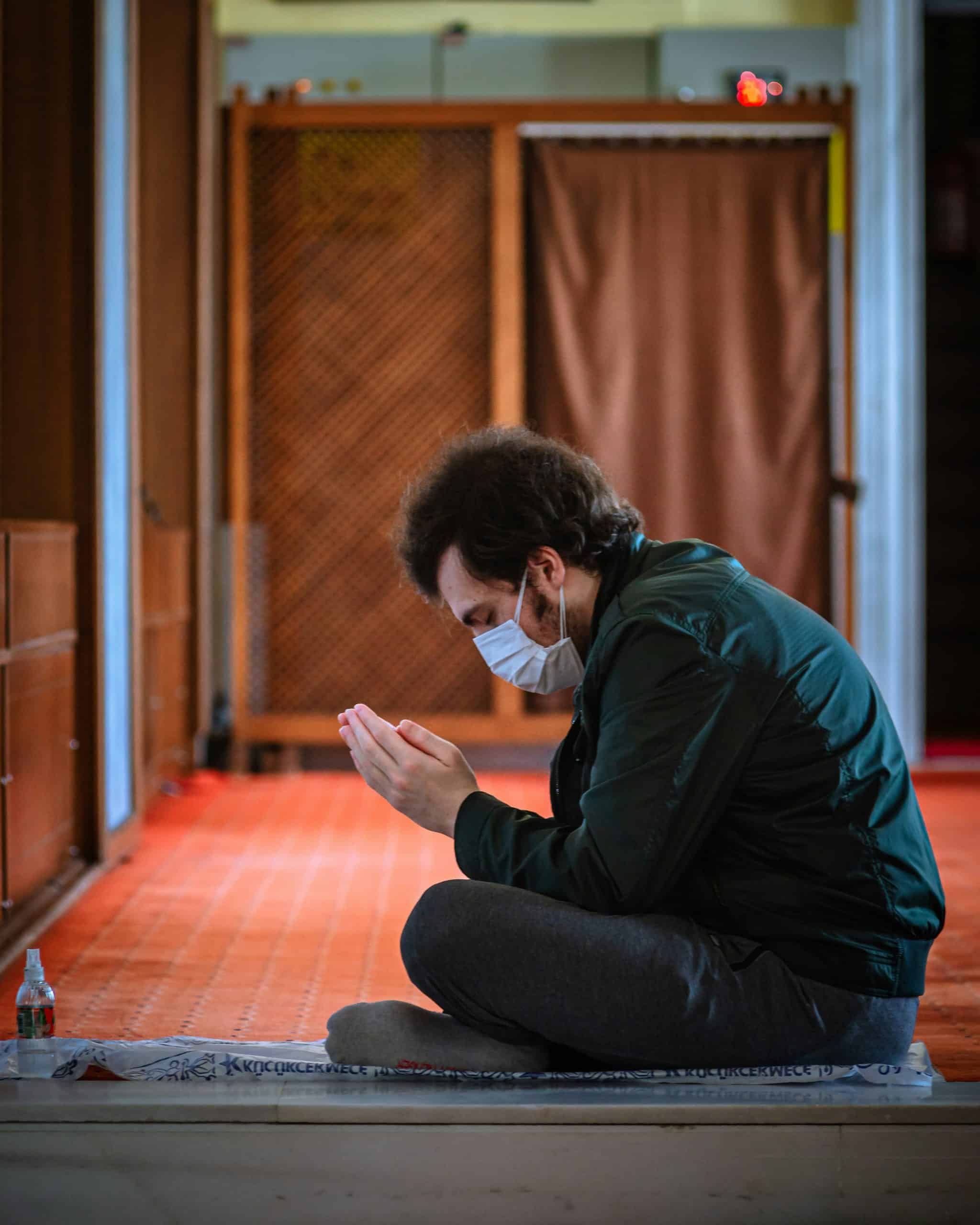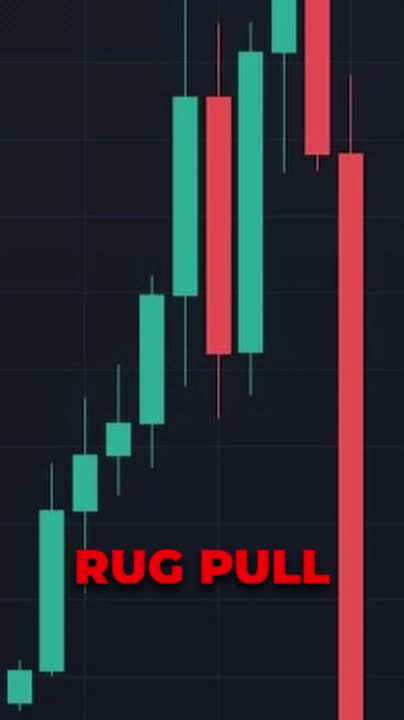Beyond Longing – Dua: A Deliberate Act Of Divine Love
When He loosens your tongue with a supplication, know that He wants to give you [something].
متى أطلق لسانك بالدعاء فاعلم أنه يريد أن يعطيك
– Ibn Ataillah Iskanderi1
A Reflection on Ibn Ataillah’s WisdomAs we traverse a world ensnared by the allure of tangible comforts and transient distractions, many souls find themselves adrift, distanced from the profound act of prayer. The cacophony of modern life, with its relentless demands and superficial pursuits, often silences the sacred whispers of our hearts, drawing us away from the divine communion that lies within our reach.
Our reliance on material means erects barriers to spiritual fulfillment, blinding us to the transformative power of turning to Allah  in our moments of need. Yet, it is in these very moments of yearning that the door to the Divine swings wide open, inviting us to engage in a dialogue that transcends the mundane. To forget this invitation is to overlook the essence of our existence—to neglect the profound relationship that awaits us in the stillness of our supplications.
in our moments of need. Yet, it is in these very moments of yearning that the door to the Divine swings wide open, inviting us to engage in a dialogue that transcends the mundane. To forget this invitation is to overlook the essence of our existence—to neglect the profound relationship that awaits us in the stillness of our supplications.
When the whispers of supplication rise from your lips, recognize that they are not mere expressions of longing, nor are they echoes cast futilely into the void. Instead, they are the gentle summons of the Divine—a profound indication that He, who holds the treasures of the heavens and the earth, has already turned toward you in mercy and compassion.
Have you ever pondered whether your hands would rise in prayer had He not already willed to fill them with blessings? Would your heart yearn for His presence if He had not already decreed its solace? This yearning is not an accident; it is a deliberate act of Divine Love, a sign that your soul is attuned to the call of its Creator.
Du’a is not a plea cast into uncertainty; it is an answered call in its very utterance. Every invocation you make carries the weight of Divine acknowledgment, a promise that your words are heard and cherished. In this sacred act of supplication, you engage in a dialogue that transcends mere requests; you enter into a relationship, a communion with the One Who knows your innermost thoughts and desires.
The act of praying is a testament to the interconnectedness of the seeker and the Divine. It reflects a deep understanding that your needs and aspirations have already been woven into the tapestry of existence, designed by a loving Creator Who anticipates your every call. Each prayer is a thread in this intricate fabric, binding you closer to the source of all mercy and grace.
As the Prophet Muhammad [ﷺ] said:
“إن الله تعالى حيٌ كريم، يستحيي إذا رفع الرجل إليهم يديه أن يردهما صفراً خائبتين.”
“Indeed, Allah is modest and generous. He is ashamed that when a servant raises his hands to Him, He would return them empty and disappointed.” [Abu Dawood, Al-Tirmidhi]
Thus, when you find yourself in the moment of supplication, do so with the knowledge that your voice is not lost. It is a beacon, a radiant light that pierces the darkness, beckoning the Divine to respond. In this sacred exchange, trust that you are enveloped in mercy, and that every whisper of your heart has the potential to transform your reality.
As Ibn Ata’ Allah said:
“دعاء العبد سلاحه، وبه يفتح له من أبواب الرحمة.”
“The supplication of the servant is his weapon, and through it, the doors of mercy are opened for him.”
In this understanding, embrace the act of supplication with unwavering faith, knowing that your prayers are not just words—they are the keys to the treasures of Divine grace.
The Divine Invitation to SeekAllah  does not inspire your heart to call upon Him only to turn you away. Rather, the very breath of supplication is a profound indication that the gates of Divine generosity have already been unlocked, inviting you into a realm of endless possibility and grace. It is a Divine invitation, a whisper from the Creator, assuring you that your desires and hopes are not in vain.
does not inspire your heart to call upon Him only to turn you away. Rather, the very breath of supplication is a profound indication that the gates of Divine generosity have already been unlocked, inviting you into a realm of endless possibility and grace. It is a Divine invitation, a whisper from the Creator, assuring you that your desires and hopes are not in vain.
He Himself  proclaims:
proclaims:
“And your Lord says, ‘Call upon Me; I will respond to you. Indeed, those who disdain My worship will enter Hell [rendered] contemptible.” [Surah Ghafir; 40:60]
This verse encapsulates the essence of Allah’s  Promise—that the act of calling upon Him is met with a guarantee of response.
Promise—that the act of calling upon Him is met with a guarantee of response.
O seeker, understand that your prayer was heard before it ever graced your lips. Your yearning was answered long before it took form in your heart.
This is not a mere coincidence; it is the manifestation of Divine wisdom.

“Thus, when you find yourself in the throes of supplication, remember that your prayers are not lost; they are held close to the heart of the One who knows you better than you know yourself.” [PC: Imad Alassiry (unsplash)]
For it is He who plants the seed of du’a in your soul, nurturing it with His Mercy and Compassion. Just as a gardener tends to the delicate shoots of a new plant, so too does Allah cultivate your supplications, ensuring they receive the nourishment they need to flourish. Each prayer is a testament to the connection between you and the Divine; a sacred dialogue that transcends the limitations of time and space.
cultivate your supplications, ensuring they receive the nourishment they need to flourish. Each prayer is a testament to the connection between you and the Divine; a sacred dialogue that transcends the limitations of time and space.
In this Divine exchange, your heart’s yearning is a reflection of His Will. He instills in you the desire to seek, to ask, and to knock upon the door of His mercy, knowing that every sincere plea is met with an equally sincere response. This is not a transaction but a relationship—a sacred bond that deepens with every invocation.
Thus, when you find yourself in the throes of supplication, remember that your prayers are not lost; they are held close to the heart of the One who knows you better than you know yourself. In this sacred space of connection, trust that your voice is echoed in the heavens and that every tear shed in earnestness is counted and cherished. For it is He who plants the seed of du’a in your soul, only so that He may water it with His Mercy.
A Prophetic Promise of ResponseThe Messenger of Allah [ﷺ] assured the broken-hearted and the weary:
مَا مِنْ مُسْلِمٍ يَدْعُو اللَّهَ بِدَعْوَةٍ لَيْسَ فِيهَا إِثْمٌ، وَلَا قَطِيعَةُ رَحِمٍ، إِلَّا أَعْطَاهُ اللَّهُ بِهَا إِحْدَى ثَلَاثٍ: إِمَّا أَنْ تُعَجَّلَ لَهُ دَعْوَتُهُ، وَإِمَّا أَنْ يَدَّخِرَهَا لَهُ فِي الْآخِرَةِ، وَإِمَّا أَنْ يَصْرِفَ عَنْهُ مِنَ السُّوءِ مِثْلَهَا.
“There is no Muslim who supplicates to Allah with a supplication that contains no sin nor severing of family ties, except that Allah grants him one of three things: either He will quickly answer his supplication, or He will store it for him in the Hereafter, or He will turn away from him an equivalent harm.” [Ahmad, Al-Tirmidhi]
This profound hadith encapsulates the infinite Mercy and Wisdom of Allah  , serving as a cornerstone of faith for believers. It reassures us that our prayers are never cast into the abyss of silence; rather, they are met with Divine attention and care. Each sincere supplication, untainted by sin or malice, is enveloped in a promise of response, manifesting in ways that reflect Allah’s
, serving as a cornerstone of faith for believers. It reassures us that our prayers are never cast into the abyss of silence; rather, they are met with Divine attention and care. Each sincere supplication, untainted by sin or malice, is enveloped in a promise of response, manifesting in ways that reflect Allah’s  intricate Understanding of our deepest needs.
intricate Understanding of our deepest needs.
- Immediate Response: The first possibility reveals the immediacy of Divine Grace. When our hearts cry out, Allah
 may swiftly fulfill our desires, showcasing His readiness to provide for His Creation. This encourages a profound trust in His willingness to respond, reminding us that our pleas are not mere words; they are heartfelt invitations for His Mercy to descend upon us.
may swiftly fulfill our desires, showcasing His readiness to provide for His Creation. This encourages a profound trust in His willingness to respond, reminding us that our pleas are not mere words; they are heartfelt invitations for His Mercy to descend upon us. - Storing in the Hereafter: The second possibility underscores the eternal nature of Divine Justice. If our supplication remains unanswered in this life, it is preserved for us in the Hereafter—a testament to Allah’s
 Foresight and Compassion. This notion transforms our understanding of time and reward, affirming that our struggles and prayers in this ephemeral world lay the groundwork for everlasting blessings in the next.
Foresight and Compassion. This notion transforms our understanding of time and reward, affirming that our struggles and prayers in this ephemeral world lay the groundwork for everlasting blessings in the next. - Diverting Harm: The third promise embodies a profound aspect of Divine Wisdom: Allah
 may choose to avert an equivalent harm from us. This reflects a deeper understanding that our desires may not always align with our best interests. Through this divine intervention, Allah
may choose to avert an equivalent harm from us. This reflects a deeper understanding that our desires may not always align with our best interests. Through this divine intervention, Allah  safeguards us from trials we may not recognize, illustrating His protective Embrace and omniscient Care.
safeguards us from trials we may not recognize, illustrating His protective Embrace and omniscient Care.
Therefore, when you feel the stirrings of du’a, do not doubt. Do not hesitate. For if He has placed it upon your tongue, He has already inscribed its reply in the fabric of the unseen. Your prayer is a testament to your connection with the Divine, a bridge that draws you closer to His infinite Mercy and Compassion. Each utterance is not merely a request but an act of faith, a declaration of your trust in His Divine Plan.
In this sacred relationship, remember that your voice is heard, your pleas are cherished, and your heart’s yearnings are met with Divine Grace. Embrace the act of supplication with confidence, knowing that Allah’s  Response is always perfectly timed and exquisitely tailored to your ultimate good. In doing so, you engage in a cosmic dialogue, a sacred communion that transcends the limitations of our understanding, illuminating the path toward spiritual fulfillment and Divine Intimacy.
Response is always perfectly timed and exquisitely tailored to your ultimate good. In doing so, you engage in a cosmic dialogue, a sacred communion that transcends the limitations of our understanding, illuminating the path toward spiritual fulfillment and Divine Intimacy.
O heart that trembles in the night, know this: you would not have knocked had the door not been meant to open.
You would not have wept had the response not been decreed.
For the Messenger of Allah ﷺ has said:
إِنَّ اللَّهَ حَيِيٌّ كَرِيمٌ، يَسْتَحِي إِذَا رَفَعَ الرَّجُلُ إِلَيْهِ يَدَيْهِ أَنْ يَرُدَّهُمَا صِفْرًا خَائِبَتَيْنِ
“Indeed, Allah is modest and generous. He is ashamed that when a servant raises his hands to Him, He would return them empty and disappointed.” [Abu Dawood, Al-Tirmidhi]
So call upon Him with certainty, with the unshakable faith that your voice is heard, your plea is recorded, and your answer is already on its way—perhaps not in the form you expect, but always in the way that is best for you.
The Echo of His MercyWhen Allah  , ignites your tongue with the fire of supplication, perceive this not merely as your own initiative, but as a sacred invitation from the Divine to partake in the bounty of His Mercy. Each supplication is akin to a seed, delicately sown in the fertile soil of your heart; some may bloom in this ephemeral world, while others will blossom in the eternal gardens of the Hereafter, yet none are ever lost to the winds of time.
, ignites your tongue with the fire of supplication, perceive this not merely as your own initiative, but as a sacred invitation from the Divine to partake in the bounty of His Mercy. Each supplication is akin to a seed, delicately sown in the fertile soil of your heart; some may bloom in this ephemeral world, while others will blossom in the eternal gardens of the Hereafter, yet none are ever lost to the winds of time.
Pray, O seeker, with unwavering conviction, for you are not unheard. Lift your hands in earnest entreaty, for He is too generous to return them empty. Each cry of your heart, each whisper of your soul, resonates in the boundless expanse of the Divine, met with a promise—a promise that transcends our understanding and expectations.
When your heart quivers with longing, recognize this tremor as the gentle summons of the Divine:
“Come to Me, and I shall bestow upon you more than you ever dared to imagine.”2
Your yearning is not an echo cast into the void; it is a manifestation of the love and mercy that Allah  has intricately woven into the fabric of your existence. In the profound words of Rumi:
has intricately woven into the fabric of your existence. In the profound words of Rumi:
“Come, come, whoever you are. Wanderer, worshiper, lover of leaving. It doesn’t matter. Ours is not a caravan of despair. Come, even if you have broken your vows a thousand times. Come, yet again, come, come.”
This is a clarion call to return, a reminder that regardless of your trials and tribulations, the gates of mercy remain perpetually ajar. Embrace this invitation to commune with the Divine, for every moment spent in supplication is a step toward the realization of your heart’s most profound desires.
In this sacred journey, trust that your prayers are not mere utterances; they are bridges to the Infinite, pathways to tranquility, and channels of divine grace. Allah  is awaiting your return—so come, and let your heart speak its truth with unrestrained fervor. In doing so, you shall unveil the treasures that await those who dare to seek.
is awaiting your return—so come, and let your heart speak its truth with unrestrained fervor. In doing so, you shall unveil the treasures that await those who dare to seek.
Related:
–From The Chaplain’s Desk: The Power Of Dua
– Before You Seek Answers, Seek Him First: A Muslim Chaplain’s Ramadan Reflection
1 Ibn ʿAtāʾ Allāh al-Iskandarī (d. 709 AH / 1309 CE) was a master of the Shādhilī Sufi path, a jurist of the Mālikī school, and a spiritual heir to Abū al-ʿAbbās al-Mursī. Rooted in Alexandria, he authored the al-Ḥikam al-ʿAṭāʾiyya, a timeless treasury of Sufi wisdom.2 Khalid Hameed Shaida, Amir Khusro: The Nightingale of India – Selected Persian Odes Kindle Edition, CreateSpace, 2012, p. 56The post Beyond Longing – Dua: A Deliberate Act Of Divine Love appeared first on MuslimMatters.org.





 Inshah Malik, blinded at age 14 by a pellet gun fired by an Indian soldier at a Kashmiri freedom demonstration in Srinagar
Inshah Malik, blinded at age 14 by a pellet gun fired by an Indian soldier at a Kashmiri freedom demonstration in Srinagar